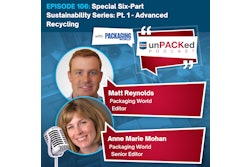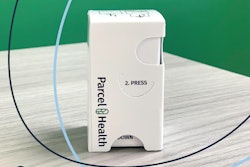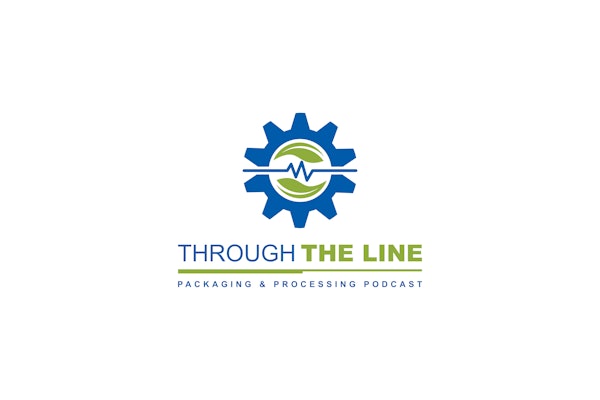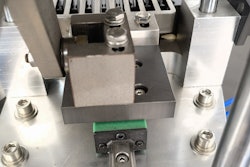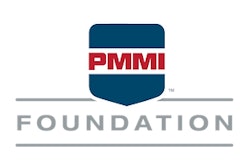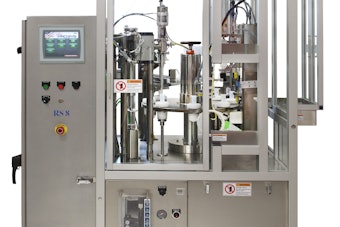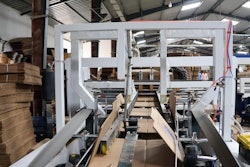Aluminum is the topic for part two of a six-part sustainability sit-down with Packaging World editors Anne Marie Mohan and Matt Reynolds. Mohan and Reynolds cover sustainability and packaging materials daily for Packaging World and rank among the most knowledgeable in the industry on current trends and breakthroughs. The pair discuss how aluminum could be infinitely recyclable and why the general public embraces—or at least appears to embrace— aluminum recycling more than other materials.
 | Read the full transcript below.
|
Sean Riley:
Welcome back to the podcast Anne Marie Mohan and Matt Reynolds. Welcome Anne Marie.
Anne Marie Mohan:
Wonderful to be here.
Sean Riley:
Welcome Matt.
Matt Reynolds:
Thanks for having me.
Sean Riley:
Pleasure is all mine. I'm an aluminum guy. I like aluminum. I like a nice can of beer in aluminum. I don't know why I prefer it over glass, but that's not why we're here. We're here to talk about aluminum from a sustainability and a recycling standpoint. It's kind of all the rage. Everybody's switching to aluminum and I guess, the first thing or the first question, the cynic in me... Aluminum is something that we have to mine from the earth. So, that's the first thing I think of is, how is this something that is so wonderful if we have to mine it from the earth?
And then you get into, it's also heavy. And then, you get into it can be dented and I just feel like there's a slew of things that sort get overlooked when we talk about it. But, it's so easily recyclable. So, is the whole hype, and again, I'm an aluminum guy. I'm looking at me, it's the aluminum people. Is the hype behind aluminum true? Is it as good as they say when it comes to that? I guess, if you guys could just give me a little clarity on that. How about that Ann Marie?
Anne Marie Mohan:
That's a great question and it's something I myself wondered as I was covering a lot of these companies who are making the switch from plastic to aluminum because plastic is recyclable. So, why is aluminum better when plastic has a lot of sustainability advantages including being lighter? What really put it into perspective for me and answered the question for me was a presentation I heard at Circularity 22 a couple weeks ago. There was a speaker there from Grove Collaborative, Danielle Jezienicki, and she is a Senior Director of Sustainability for Grove and Grove is really trying to move away from plastics entirely. And she said, "It's not that if we're trying to get a circular system, aluminum is the next best or is better than plastic because it is recycled at such a higher rate." So, it's not that plastic isn't recycled, but also there's the issue of plastic degrading after each time you recycle it. Whereas, aluminum is infinitely recyclable. So, no matter how many times it's recycled, it still has the same properties as it did initially.
Matt Reynolds:
Anne Marie I would say the same thing and that I got a lot of the same press releases that you did and they all were using this phrase infinitely recyclable and it was, 201 you would see the word infinitely recyclable and it would be used. So obviously, that raises these, is this marketing, is this greenwash? But when you think about it, yeah, you mentioned the degradation of plastic. That's true for paper as well. You think of paper as the most recyclable.
Sean Riley:
Sure, it's true.
Matt Reynolds:
But the more you... Every time, every cycle, those strands, those fibers that make up any kind of wood or pulp based material, they're getting shorter. They're getting shorter and they're losing their robustness. They're losing some of the properties that they have. So among those materials, aluminum really is the only one that can say infinitely recyclable. Glass can too, because glass you can melt that down and be glass used again. But glass does not, doesn't have the qualities of light-weighting at the right weight and it's also shatter prone, which obviously aluminum doesn't have.
So that infinitely recyclable tagline, while we were both apparently skeptical of it, really does ring true to me. Another factor is not just that it's recycled more, which is absolutely true of the major materials, or at least against plastic. I think, aluminum is by far recycled more, but each individual can itself. Let's see, imagine the 12 ounce can. I think the statistics from 2018, so it's a while back, but it's been recycled already, like 68% of that has gone through a few cycles. You mentioned mining it from the earth, extracting the ore a lot of carbon emissions go into your John Deere, whatever the big machinery that that takes that out of the earth. But the more ties that, over cycle after cycle after cycle as the phrase says, infinitely and suddenly the actual cost per cycle goes way down.
So, when you're removing it from the earth and you're first creating virgin aluminum, obviously a lot goes into it. But then, after each recycling only 8% of that original output goes in. So, the longer you use it and the more cycles you can get out of it and the percentage of recycled material PCR material in any given can is only going to increase over time. As each cycle goes, you're going to get a larger amount of PCR in there. So, not only is it recycled more, but it's using PCR. So of the materials, it's the closest to an already existing circular system.
Sean Riley:
So I guess the question for me now is, it seems that everything we're hearing about is moving from plastic to aluminum. I seem to remember I guess as a kid that it was things started out in aluminum, then it might work its way to glass and then, glass kind of made its way into plastic as we got away from glass a little bit. Because, you could drop it. It was shatterproof, things like that. Now, it seems like we've come full circle back to aluminum. So is that just the case in general where we see a lot of things moving specifically from plastic to aluminum?
Anne Marie Mohan:
I think there are definitely case studies out there. I wouldn't say it's the majority, but it's happening. Matt and I covered a number of personal care products that made this switch from plastic to aluminum. Maybe, last year we talked about it. But a lot of these products too position themselves as more sustainable in their ingredients and their formulas. So, it really makes sense for them to also display sustainability through their packaging. One company I talked to was called Hand in Hand and they make hand soaps and hand sanitizer and due to the ingredients they call them sustainable suds. So, they told me that one of the reasons they made the switch was exactly what we've been talking about is, plastic's low recycling rate. And Matt mentioned it earlier and I think I did as well, that plastic is recycled much less, the rate is much smaller than aluminum.
And just to put that into perspective, we have in the US a 65% recycling rate for aluminum, than PET beverage bottles, which most people I would say are where they can be recycled. We only have a 27.9% rate.
Sean Riley:
Not so good.
Anne Marie Mohan:
And then, for all plastic packaging it's only 5% to 6%. So, that is why some of these companies, as I said, Grove, made the switch because they feel like it will be recycled. It's more likely to be recycled and that's what Hand in Hand did. That's what another company did, Eva NYC. They do hair care products and they moved their whole line over to these beautiful aluminum bottles, beautifully printed aluminum bottles and they did it because of the scourge of plastics in the personal care industry. The personal care industry is really getting beaten up over that. So, that was one of the reasons they made that change too.
Sean Riley:
Interesting. And again, and I would also think it would look, I think especially in that sector where they're looking for a differentiation but also for... It looks like a more premium product because I seem to recall a lot of people using shiny aluminum type foils on in their plastic or on their plastic labeling and in their design to showcase premiumization. So, I guess going to aluminum, Matt would be something that would pop them up a little bit.
Matt Reynolds:
Yeah, well the perception of other materials outside of plastic for heavier weight, pleasurable tactile experience.
Sean Riley:
Right.
Matt Reynolds:
And something that's durable that's going to last. You can go two directions for let's say personal care products. You can go towards glass or you can go towards aluminum and only one is going to be shatterproof and comparatively quite a bit lighter. It's a question to the gauge, how thick does it need to be? Oftentimes for personal care products it doesn't even need to be that thick.
And another trend, Anne Marie and I are following like crazy is then, the move away from single use. In the move away from single use then plastics are being skewed basically in favor of something that's being durable. That'll sit around whether it's your bathroom for a shampoo, lotion, these kinds of things, forever. They can be refilled and they can be refilled either with a pouch, something that might be film, could be refilled with aluminum. But regardless, beautiful. You mentioned the screen printing that's done on some of these is gorgeous and that can sit in the bathroom setting with the closure and just be refilled over and over. You're not even doing the thing that makes aluminum so valuable, so attractive and that's recycling it. Eventually you can, but because it's a durable product that won't shatter in the bathroom, then that's why people are going that route for their premiumization instead of glass.
Sean Riley:
Interesting.
Anne Marie Mohan:
And I think you brought up a great point about the reuse aspect. I recently worked with Brita Water and their co-packer, B Water & Beverages. Brita wanted to introduce their filtered water product at retail and they wanted something sustainable and premium in appearance. And so, they developed with Trivium aluminum bottle cans in 18 and I think 25 ounce sizes and they're marketing them as being reusable. They're talking about reusing it throughout the day. So you're at work, you keep refilling it but it's pretty durable. It's impact extruded and the president of B Water & Beverages said she compared it to a beverage bottle between a beverage bottle and a stainless steel container
Sean Riley:
Like the refillable water that everyone uses now? Okay. Somewhere in between there. So, it'll get you through a day or two but you're not taking it on hikes and such like that over and over and over again. That's interesting. I hadn't honestly heard about that at all. What we do hear a lot is people going in with new products or we've heard some personal care ones, are there people adding... Because, especially with Craft Brew, I know Craft Brew came in and a lot of them jumped right into the cans cause it was easier it to get ahold of the cans. It was easier to fill, it was more cost effective, but it was also more sustainable. Are there people adding aluminum their portfolios, save their products in glass, but now they're offering aluminum options because of the many many good traits of aluminum.
Anne Marie Mohan:
Absolutely. And one very high profile company is Coca-Cola. They've introduced their Dasani water and smart water in both cans and I think in Smart Water's case in a bottle can, aluminum. It doesn't replace that plastic, but it gives consumers another option. And for Coca-Cola and companies like it, they are on this path of making sure they have commitments around sustainable packaging for 2025 and it's about reducing or eliminating virgin plastic. They're not going to be able to do that with the existing recycled plastic that's available. So, they're looking for other routes and making some of their packaging out of aluminum gives them another way to meet those goals.
Matt Reynolds:
Another way to look at it too is occasions, or day parts. Or, a lot of it, like you mentioned, wine, there's also, ready to drink beverages. There're all sorts of new, what would almost be considered... The alcohol category, used to be beer, wine, and spirits. Now there's this fourth challenger category that's seltzers and ready to drink and even you mentioned, white wine in a can. So, we're taking these things like that used to be in glass or somewhere else and these coddles, that keep the wine bottle. But, you're able to go hiking with them or take them to the beach or take them to a pool, where you could never take glass.
And because these products are high end, they might be liquor, they might be wine. That doesn't really jive with the plastic. The kind of folks that are going to be packing their granola and going on a hike are the exact type that would try to avoid plastics.
Sean Riley:
Yes.
Matt Reynolds:
For right or for wrong. So, you're basically creating a new day part, a new occasion, to be able to drink these products and bring these liquids, alcohol or otherwise. NAs are extremely popular with millennials and Gen Z right now for all sorts of occasions and aluminum makes that happen. It allows that to happen.
Sean Riley:
That's a perfect button for us to go have some alcoholic beverages in aluminum. Whether it's a seltzer, a wine, we can have wine, we can have seltzer. I'm sure there's some out there with gin and tonic. Actually I sold some, the margaritas in a can. So, we got some that are covering tequila. Basically, if you want it, you can get in a can.
So that being said, that's where we're going to go. Thank you very much again, Anne Marie. Thank you very much again, Matt. And thank you to listener at home for listening to our talk on aluminum.
Sean Riley:
Welcome back to the podcast Anne Marie Mohan and Matt Reynolds. Welcome Anne Marie.
Anne Marie Mohan:
Wonderful to be here.
Sean Riley:
Welcome Matt.
Matt Reynolds:
Thanks for having me.
Sean Riley:
Pleasure is all mine. I'm an aluminum guy. I like aluminum. I like a nice can of beer in aluminum. I don't know why I prefer it over glass, but that's not why we're here. We're here to talk about aluminum from a sustainability and a recycling standpoint. It's kind of all the rage. Everybody's switching to aluminum and I guess, the first thing or the first question, the cynic in me... Aluminum is something that we have to mine from the earth. So, that's the first thing I think of is, how is this something that is so wonderful if we have to mine it from the earth?
And then you get into, it's also heavy. And then, you get into it can be dented and I just feel like there's a slew of things that sort get overlooked when we talk about it. But, it's so easily recyclable. So, is the whole hype, and again, I'm an aluminum guy. I'm looking at me, it's the aluminum people. Is the hype behind aluminum true? Is it as good as they say when it comes to that? I guess, if you guys could just give me a little clarity on that. How about that Ann Marie?
Anne Marie Mohan:
That's a great question and it's something I myself wondered as I was covering a lot of these companies who are making the switch from plastic to aluminum because plastic is recyclable. So, why is aluminum better when plastic has a lot of sustainability advantages including being lighter? What really put it into perspective for me and answered the question for me was a presentation I heard at Circularity 22 a couple weeks ago. There was a speaker there from Grove Collaborative, Danielle Jezienicki, and she is a Senior Director of Sustainability for Grove and Grove is really trying to move away from plastics entirely. And she said, "It's not that if we're trying to get a circular system, aluminum is the next best or is better than plastic because it is recycled at such a higher rate." So, it's not that plastic isn't recycled, but also there's the issue of plastic degrading after each time you recycle it. Whereas, aluminum is infinitely recyclable. So, no matter how many times it's recycled, it still has the same properties as it did initially.
Matt Reynolds:
Anne Marie I would say the same thing and that I got a lot of the same press releases that you did and they all were using this phrase infinitely recyclable and it was, 201 you would see the word infinitely recyclable and it would be used. So obviously, that raises these, is this marketing, is this greenwash? But when you think about it, yeah, you mentioned the degradation of plastic. That's true for paper as well. You think of paper as the most recyclable.
Sean Riley:
Sure, it's true.
Matt Reynolds:
But the more you... Every time, every cycle, those strands, those fibers that make up any kind of wood or pulp based material, they're getting shorter. They're getting shorter and they're losing their robustness. They're losing some of the properties that they have. So among those materials, aluminum really is the only one that can say infinitely recyclable. Glass can too, because glass you can melt that down and be glass used again. But glass does not, doesn't have the qualities of light-weighting at the right weight and it's also shatter prone, which obviously aluminum doesn't have.
So that infinitely recyclable tagline, while we were both apparently skeptical of it, really does ring true to me. Another factor is not just that it's recycled more, which is absolutely true of the major materials, or at least against plastic. I think, aluminum is by far recycled more, but each individual can itself. Let's see, imagine the 12 ounce can. I think the statistics from 2018, so it's a while back, but it's been recycled already, like 68% of that has gone through a few cycles. You mentioned mining it from the earth, extracting the ore a lot of carbon emissions go into your John Deere, whatever the big machinery that that takes that out of the earth. But the more ties that, over cycle after cycle after cycle as the phrase says, infinitely and suddenly the actual cost per cycle goes way down.
So, when you're removing it from the earth and you're first creating virgin aluminum, obviously a lot goes into it. But then, after each recycling only 8% of that original output goes in. So, the longer you use it and the more cycles you can get out of it and the percentage of recycled material PCR material in any given can is only going to increase over time. As each cycle goes, you're going to get a larger amount of PCR in there. So, not only is it recycled more, but it's using PCR. So of the materials, it's the closest to an already existing circular system.
Sean Riley:
So I guess the question for me now is, it seems that everything we're hearing about is moving from plastic to aluminum. I seem to remember I guess as a kid that it was things started out in aluminum, then it might work its way to glass and then, glass kind of made its way into plastic as we got away from glass a little bit. Because, you could drop it. It was shatterproof, things like that. Now, it seems like we've come full circle back to aluminum. So is that just the case in general where we see a lot of things moving specifically from plastic to aluminum?
Anne Marie Mohan:
I think there are definitely case studies out there. I wouldn't say it's the majority, but it's happening. Matt and I covered a number of personal care products that made this switch from plastic to aluminum. Maybe, last year we talked about it. But a lot of these products too position themselves as more sustainable in their ingredients and their formulas. So, it really makes sense for them to also display sustainability through their packaging. One company I talked to was called Hand in Hand and they make hand soaps and hand sanitizer and due to the ingredients they call them sustainable suds. So, they told me that one of the reasons they made the switch was exactly what we've been talking about is, plastic's low recycling rate. And Matt mentioned it earlier and I think I did as well, that plastic is recycled much less, the rate is much smaller than aluminum.
And just to put that into perspective, we have in the US a 65% recycling rate for aluminum, than PET beverage bottles, which most people I would say are where they can be recycled. We only have a 27.9% rate.
Sean Riley:
Not so good.
Anne Marie Mohan:
And then, for all plastic packaging it's only 5% to 6%. So, that is why some of these companies, as I said, Grove, made the switch because they feel like it will be recycled. It's more likely to be recycled and that's what Hand in Hand did. That's what another company did, Eva NYC. They do hair care products and they moved their whole line over to these beautiful aluminum bottles, beautifully printed aluminum bottles and they did it because of the scourge of plastics in the personal care industry. The personal care industry is really getting beaten up over that. So, that was one of the reasons they made that change too.
Sean Riley:
Interesting. And again, and I would also think it would look, I think especially in that sector where they're looking for a differentiation but also for... It looks like a more premium product because I seem to recall a lot of people using shiny aluminum type foils on in their plastic or on their plastic labeling and in their design to showcase premiumization. So, I guess going to aluminum, Matt would be something that would pop them up a little bit.
Matt Reynolds:
Yeah, well the perception of other materials outside of plastic for heavier weight, pleasurable tactile experience.
Sean Riley:
Right.
Matt Reynolds:
And something that's durable that's going to last. You can go two directions for let's say personal care products. You can go towards glass or you can go towards aluminum and only one is going to be shatterproof and comparatively quite a bit lighter. It's a question to the gauge, how thick does it need to be? Oftentimes for personal care products it doesn't even need to be that thick.
And another trend, Anne Marie and I are following like crazy is then, the move away from single use. In the move away from single use then plastics are being skewed basically in favor of something that's being durable. That'll sit around whether it's your bathroom for a shampoo, lotion, these kinds of things, forever. They can be refilled and they can be refilled either with a pouch, something that might be film, could be refilled with aluminum. But regardless, beautiful. You mentioned the screen printing that's done on some of these is gorgeous and that can sit in the bathroom setting with the closure and just be refilled over and over. You're not even doing the thing that makes aluminum so valuable, so attractive and that's recycling it. Eventually you can, but because it's a durable product that won't shatter in the bathroom, then that's why people are going that route for their premiumization instead of glass.
Sean Riley:
Interesting.
Anne Marie Mohan:
And I think you brought up a great point about the reuse aspect. I recently worked with Brita Water and their co-packer, B Water & Beverages. Brita wanted to introduce their filtered water product at retail and they wanted something sustainable and premium in appearance. And so, they developed with Trivium aluminum bottle cans in 18 and I think 25 ounce sizes and they're marketing them as being reusable. They're talking about reusing it throughout the day. So you're at work, you keep refilling it but it's pretty durable. It's impact extruded and the president of B Water & Beverages said she compared it to a beverage bottle between a beverage bottle and a stainless steel container
Sean Riley:
Like the refillable water that everyone uses now? Okay. Somewhere in between there. So, it'll get you through a day or two but you're not taking it on hikes and such like that over and over and over again. That's interesting. I hadn't honestly heard about that at all. What we do hear a lot is people going in with new products or we've heard some personal care ones, are there people adding... Because, especially with Craft Brew, I know Craft Brew came in and a lot of them jumped right into the cans cause it was easier it to get ahold of the cans. It was easier to fill, it was more cost effective, but it was also more sustainable. Are there people adding aluminum their portfolios, save their products in glass, but now they're offering aluminum options because of the many many good traits of aluminum.
Anne Marie Mohan:
Absolutely. And one very high profile company is Coca-Cola. They've introduced their Dasani water and smart water in both cans and I think in Smart Water's case in a bottle can, aluminum. It doesn't replace that plastic, but it gives consumers another option. And for Coca-Cola and companies like it, they are on this path of making sure they have commitments around sustainable packaging for 2025 and it's about reducing or eliminating virgin plastic. They're not going to be able to do that with the existing recycled plastic that's available. So, they're looking for other routes and making some of their packaging out of aluminum gives them another way to meet those goals.
Matt Reynolds:
Another way to look at it too is occasions, or day parts. Or, a lot of it, like you mentioned, wine, there's also, ready to drink beverages. There're all sorts of new, what would almost be considered... The alcohol category, used to be beer, wine, and spirits. Now there's this fourth challenger category that's seltzers and ready to drink and even you mentioned, white wine in a can. So, we're taking these things like that used to be in glass or somewhere else and these coddles, that keep the wine bottle. But, you're able to go hiking with them or take them to the beach or take them to a pool, where you could never take glass.
And because these products are high end, they might be liquor, they might be wine. That doesn't really jive with the plastic. The kind of folks that are going to be packing their granola and going on a hike are the exact type that would try to avoid plastics.
Sean Riley:
Yes.
Matt Reynolds:
For right or for wrong. So, you're basically creating a new day part, a new occasion, to be able to drink these products and bring these liquids, alcohol or otherwise. NAs are extremely popular with millennials and Gen Z right now for all sorts of occasions and aluminum makes that happen. It allows that to happen.
Sean Riley:
That's a perfect button for us to go have some alcoholic beverages in aluminum. Whether it's a seltzer, a wine, we can have wine, we can have seltzer. I'm sure there's some out there with gin and tonic. Actually I sold some, the margaritas in a can. So, we got some that are covering tequila. Basically, if you want it, you can get in a can.
So that being said, that's where we're going to go. Thank you very much again, Anne Marie. Thank you very much again, Matt. And thank you to listener at home for listening to our talk on aluminum.



